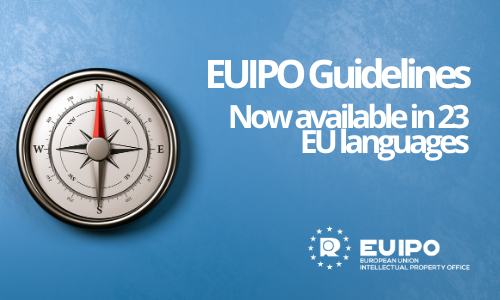INTERVIEW
Interview with Christine Lagarde, President of the ECB, conducted by Marie Charrel and Eric Albert and published on 19 October 2020
19 October 2020
With the pandemic getting worse, many countries are introducing new restrictions. Against this backdrop, what are your fears for the European economy?
The second wave of the pandemic in Europe, notably in France, and the resulting new restrictions are adding to the uncertainty and weighing on the recovery. Since the rebound we saw over the summer, the recovery has been uneven, uncertain and incomplete and now risks losing momentum. We will keep a close watch on indicators throughout the autumn. Our central scenario foresees euro area GDP declining by an average of 8% in 2020 and assumes partial and localised containment measures. If the situation deteriorates, our projections, which we will revise in December, will obviously be gloomier.
Back in March, some people were hoping that the pandemic would be a short-lived shock. That is not the case. What long-term scars might this crisis leave behind?
Job losses are the most serious. They pose a risk for the social fabric, household income, demand and growth. Governments in the euro area need to be extremely mindful of this. We think it’s essential that the fiscal safety nets that governments put in place during this crisis are not withdrawn too soon.
In response to the slowdown in activity, the ECB launched asset purchases amounting to more than €1.5 trillion, which is unprecedented. If the crisis gets worse, what more will it be able to do?
The options in our toolbox have not been exhausted. If more has to be done, we will do more. On taking up my position, I was told that there was nothing left for me to do, that everything had been done. But that was clearly not the case! We have found ways to stabilise the markets and support the euro area economy. Thanks to the action we took between March and June, we estimate that growth will be 1.3 percentage points higher overall, and inflation 0.8 percentage points higher. According to the ECB’s assessment, we have saved one million jobs in the euro area. So we have acted, and our action has been effective.
The pandemic emergency purchase programme, or PEPP for short, which was launched in March, has effectively calmed the markets. But does it actually support the real economy?
The PEPP has a dual objective: first, to stabilise the markets, and this objective has been fulfilled; next, to help bring inflation back to its pre-pandemic path, while keeping interest rates low and ensuring that these low rates are passed on to the real economy, which has worked. Our market actions, in tandem with our programme of long-term loans to the real economy – the well-known targeted longer-term refinancing operations (TLTROs) – have enabled lending to continue at very low rates. Lending rates for households and firms are around 1.4% to 1.5%. In the euro area, the volume of lending has increased by 7% for firms and 3% for households.
Central banks have been taking action for the past ten years and still need to do more. Why is their action becoming less and less effective?
After the crisis of 2008, fiscal policy was not forthcoming. Central banks were working very much in isolation. This was particularly true in the euro area. But we are now in a different paradigm. Fiscal support is playing its part and is working hand in hand with monetary support. This is unprecedented and will be effective.
In July, Europe agreed on an unprecedented joint recovery plan of €750 billion. Did you have a say in setting the amount?
As of a meeting of the Eurogroup in April, I had been stressing the need for a plan that is substantial, quick and flexible, but at the same time targeted at the countries and sectors that need it the most. According to our assessment, that corresponded to an envelope of between €1 trillion and €1.5 trillion. If you take into account the €540 billion of the first emergency package agreed by the Eurogroup – which included support for the provision of loans to firms, the short-time work schemes (the SURE plan), and the additional financing via the European Stability Mechanism (ESM) – and the €750 billion of the recovery plan approved by the European Council on 21 July, you could say we’ve reached that amount.
Given the urgency of the crisis, isn’t there a risk that these €750 billion are allocated too late?
The Commission’s aim is to be able to distribute these funds at the beginning of 2021, and this timeline must be kept. The ball is in the court of the national governments, who have to present their recovery plans – some of which are already ready – and of the Commission, which will have to examine them carefully but quickly. We also need rapid progress on the political side, in particular the adoption of the measures by national parliaments.
It is vital that this extraordinary plan, which has broken significant taboos in certain countries, is a success. If it is not targeted, if it gets lost in an administrative labyrinth and does not support the real economy in reorienting our countries to be more digital and green, we will have missed a historic opportunity to make a real difference.
The parallel interventions of the ECB and national governments enabled us to avoid a financial crisis. But if these difficulties continue, do we risk seeing a resurgence of fears that the euro area will implode?
I will repeat the words of my predecessor: the euro is irreversible. Additionally, the €750 billion recovery plan – collective borrowing that represents 5% of EU GDP – is a major turning point for Europe. It has changed things completely. We now have an additional tool at our disposal, even if it is something of an exception. National governments have shown that, if the situation demands it, there is clearly a will to work together in solidarity. Having more than 50% of the €750 billion in the form of grants for the countries and sectors that have been hit hardest is truly innovative.
Does the euro area finally have the beginnings of the budget it always lacked, to go alongside monetary policy?
This recovery plan tool is a response to an extraordinary situation. We should discuss the possibility of it remaining in the European toolbox so it could be used again if similar circumstances arise. I hope that there will also be a debate about a common budgetary tool for the euro area, and that it will be enriched by our current experience.
Such a debate will be tricky: some countries, like the Netherlands, already had strong concerns about the recovery plan…
This sort of opposition is not at all surprising: that’s how Europe works. During the last crisis too, at the height of concerns, it took time to set up the ESM. For many governments, acknowledging that a collective response is the right response to a common shock takes time.
Governments have taken on huge amounts of debt during this crisis; debt that has been purchased by the ECB. Some economists are calling for this debt to be cancelled. Is that possible?
Article 123 of the Treaty on the Functioning of the EU forbids the ECB from financing the budgets of Member States, pure and simple. Debt cancellation would be exactly that. Breaking European Treaties is not on my road map.
1 November will mark one year since you took up your post. What has surprised you the most?
The severity of the shock. I experienced the 2008 crisis: between the summer of 2007 and the summer of 2008, problems increased gradually. There were signs that the crisis was coming, of stress in the financial system. This time, the speed and the scale of the shock were unprecedented.
At what point did you become aware of the scale of this crisis?
At the Governing Council meeting on 12 March, we decided to increase our asset purchases by €120 billion. As the situation was deteriorating between 16 and 18 March, we worked relentlessly and under lots of pressure to prepare the decision about the PEPP that was eventually taken during the night of 18 March. I spent that day on the phone to my staff from my dining room in Frankfurt, as we were all in lockdown at that point. Then in the evening all 25 members of the Governing Council met by teleconference. We had to act quickly and decisively. It was a collective decision: “We go big, or we go home!” At 23:30 we published a press release announcing our extraordinary €750 billion purchase programme.
With its reputation as an austere country, Germany’s support for the recovery plan financed by shared borrowing came as a surprise. Is this a substantial change?
This transformation came at just the right moment. Faced with such a severe crisis, Europe had to seriously reconsider its approach to issues related to balancing the budget, debt and state intervention. There was also a realisation that we were all in the same boat: if already weakened economies were to become even weaker, stronger economies would suffer too.
The ECB is considering creating a digital euro. Is this to support growth or to address geopolitical issues such as the emergence of a digital yuan?
It’s simply a matter of making our currency fit for the digital age. When we see how quickly digital payments are spreading, especially among young people, it’s important to meet this demand. If the digital euro were to see the light of day, it would not replace banknotes. It would be a complement to them. If we can have a means of payment that is more efficient, costs less, causes less pollution, can be used as easily as cash, protects privacy while ensuring traceability, reduces the cost of transferring money between countries and strengthens the international role of the euro, we would be remiss not to study it! That’s what we are doing at the ECB by starting to experiment and by launching our public consultation on the digital euro.
Should the ECB contribute to the ecological transition?
It’s a fundamental issue, and I am going to try to encourage the Governing Council to at least agree to reflect on what a central bank can legitimately do to contribute to the fight against climate change. I am aware that some commentators have their doubts. Very well, it’s something we will debate. But we must take climate issues into account because they have an impact on price stability, our primary mandate.
Everybody must step up to address what is the main risk of the 21st century. If we don’t do so now, it will no longer be possible for us to tackle climate change. It will be too late! Every one of us, no matter where we are, would be to blame if we didn’t ask ourselves: what do I need to do to play my part? What can I do? My instinct tells me that we can do more than we think.



